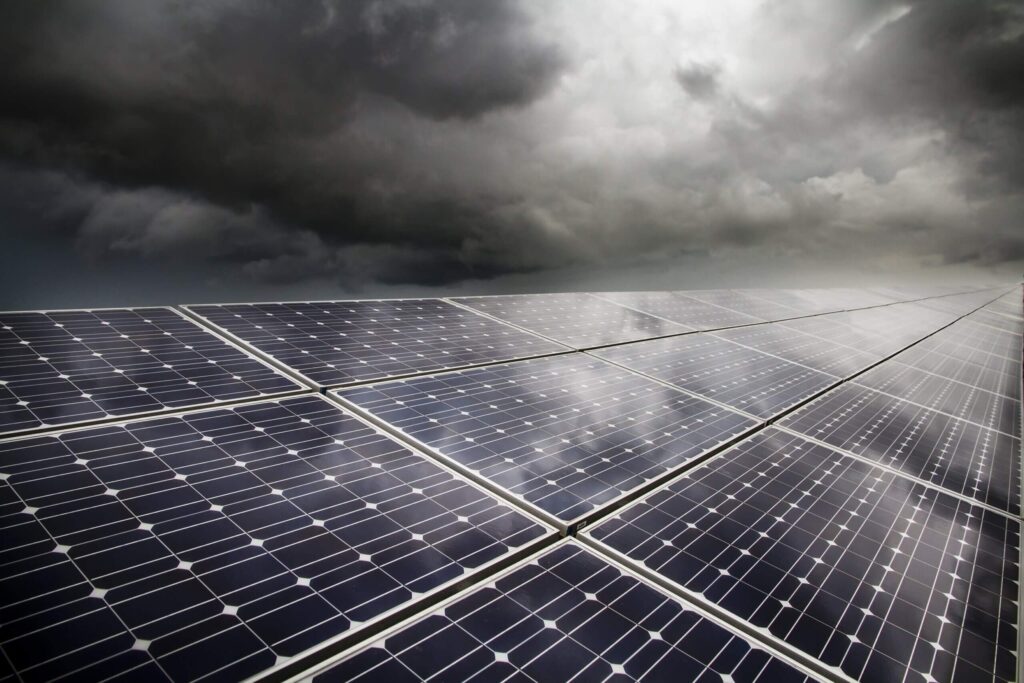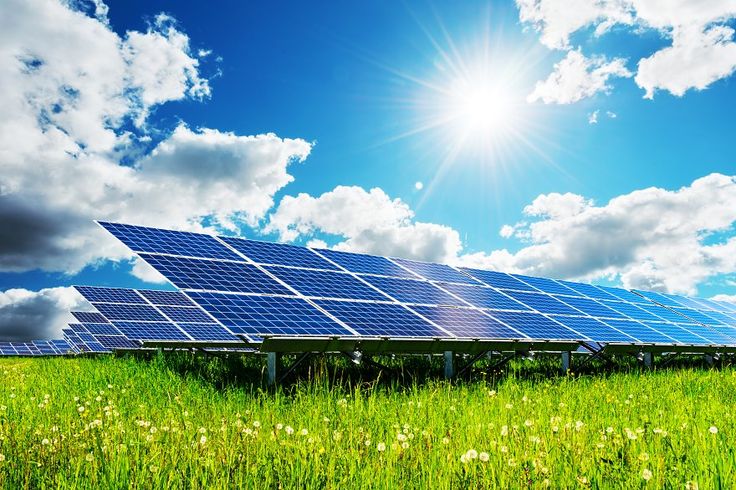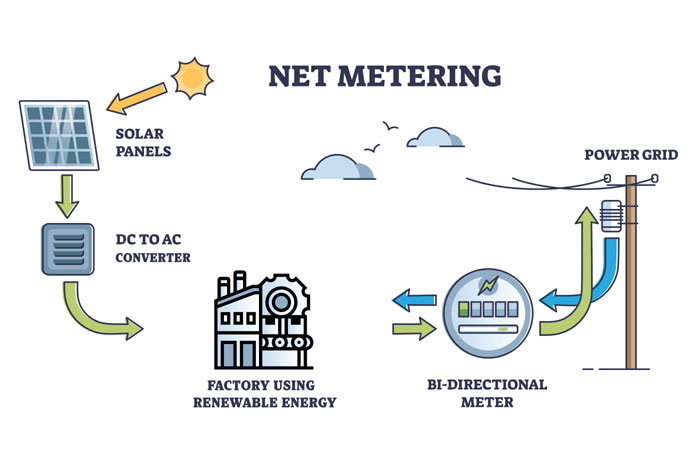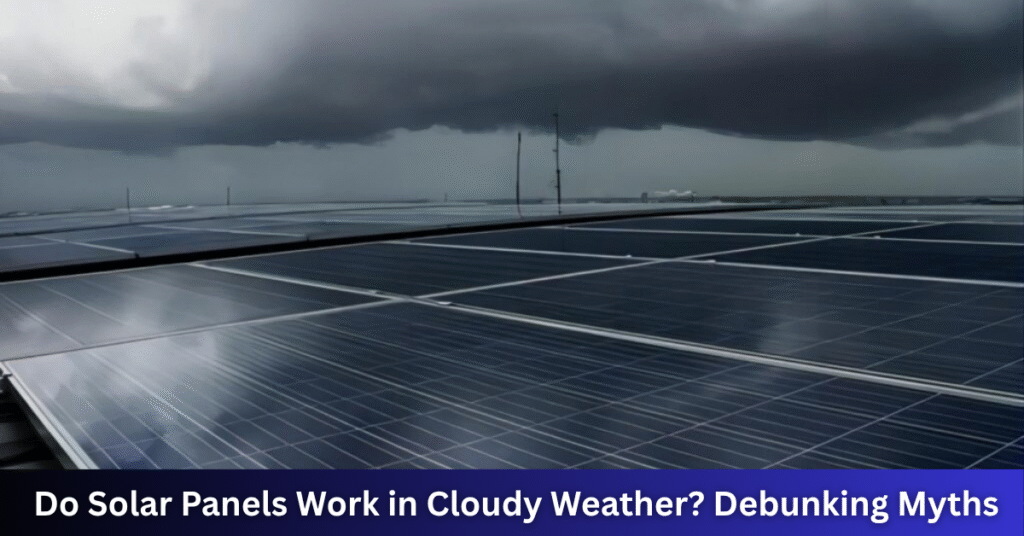A question we often hear is, “Will my solar panels stop working when it’s cloudy?” In 2025, despite the tech advancements, this myth still floats around.
Short answer? Yes, solar panels do work in cloudy weather.
Long answer? They don’t perform at 100%, but they certainly don’t shut down either.
Let’s dive in and debunk the common myths surrounding solar performance on cloudy, rainy, or overcast days — and why this concern shouldn’t stop you from going solar.

Myth #1: Solar Panels Only Work in Direct Sunlight
Reality:
Solar panels operate on light, not heat. Even on a grey day, diffused sunlight penetrates the clouds. Modern solar technology, especially Mono PERC and TOPCon, performs remarkably well under low-light conditions.

How Much Energy Do Solar Panels Produce on Cloudy Days?
Depending on cloud density and weather conditions, solar panels can produce between 10% and 60% of their normal output.
| Weather Type | Efficiency Range |
|---|---|
| Light clouds | 60–80% |
| Overcast skies | 30–50% |
| Heavy rain/dark clouds | 10–25% |
Example: In cities like Hyderabad or Vijayawada, a rainy monsoon day might still generate 2.5–3.5 units/kW/day, compared to 4.5–5.5 on a sunny day.
Bonus: Net Metering Saves You on Cloudy Days
When solar production dips, net metering allows you to use credits earned on sunny days — effectively balancing your energy usage without extra bills.
So yes, even on cloudy days, your solar investment keeps working behind the scenes.

Global Examples: Cloudy Places with High Solar Usage
Germany – Receives less sunlight than most parts of India but is still a global solar leader.
UK – Overcast almost year-round, yet thousands of homes and schools use solar PV effectively.
Seattle, USA – Famous for cloudy weather, yet sees solid solar adoption in 2025.
Technologies That Improve Cloudy Day Performance
Mono PERC or TOPCon modules – Excellent low-irradiance performance
MPPT-based inverters – Track and adjust optimal voltage during fluctuations
Bifacial modules (if installed over reflective surfaces) – Capture indirect/scattered light
Pro Tips to Maximize Output During Cloudy Days
Keep panels clean – Dirt + clouds = double trouble
Avoid shaded zones during installation
Opt for string inverters with multiple MPPTs or microinverters for higher yield
FAQs
1: Will my solar panels stop working during clouds?
No, they still work, but with reduced output — usually between 20% to 60%.
2: Do solar panels need direct sunlight?
Not necessarily. They function with indirect (diffused) sunlight too, though at lower efficiency.
3: Is solar worth it in cloudy regions?
Yes — especially with net metering and modern panel tech like Mono PERC or TOPCon.
4: How do rainy days affect solar savings?
They reduce output temporarily, but net metering compensates by using earlier credits.
Final Thought: Don’t Let Clouds Block Your Solar Decision
Clouds may reduce your panel’s energy yield, but they don’t cancel it.
Thanks to smart design, efficient inverters, and supportive policies, solar in 2025 remains a reliable and sustainable energy source — rain or shine.

